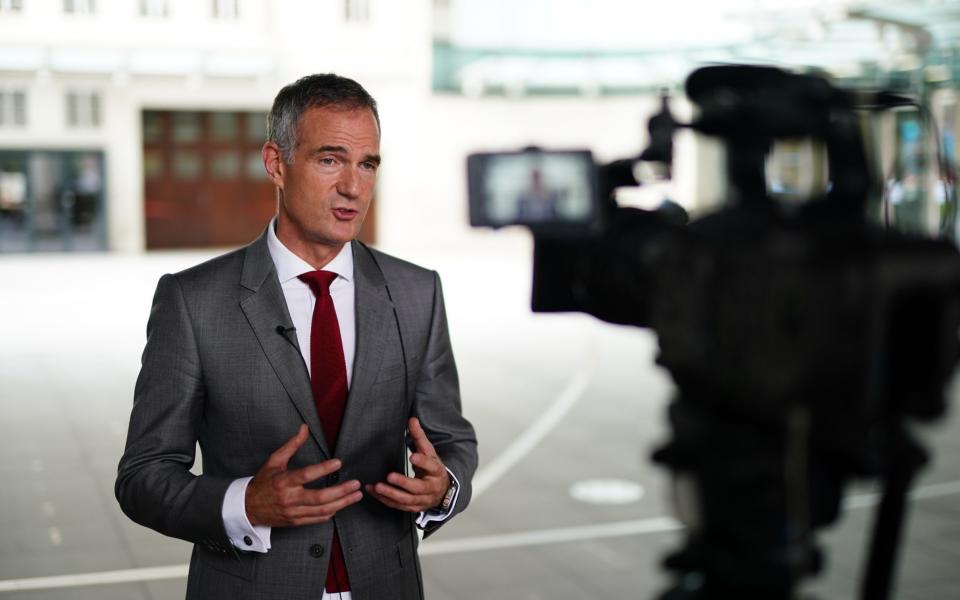Adults could be blocked from adding children as friends online under potential changes to the Online Safety Act.
Peter Kyle, the science secretary, said he was open to campaigners’ demands to tighten the law so that strangers cannot contact children or send them friend requests.
Ofcom, the regulator, has already urged technology companies to stop presenting young people with lists of suggested users to add.
Mr Kyle was asked by the BBC’s Laura Kuenssberg whether he wanted Ofcom to “fill in the gaps” that currently allow adults to ask children to be a “friend” online.
He replied: “I’ve already exercised those powers since I was appointed just three months ago in several other areas. And yes, I’m looking at all those loopholes and I’ll close [them].
“I really hope I can come back on this show and talk about all the opportunities we have if we get technology and the harnessing of the digital world that we’re moving towards right. We can only exploit those opportunities if we get safety right at the beginning.”


Most of the powers included in the Online Safety Act will not come into force until next summer, with some expected to take effect as late as 2026.
It is understood senior figures at the Department for Science, Innovation and Technology will carefully consider demands from safety campaigners and will not rush updates to the law.
Snap, the owner of the messaging app Snapchat, argued in a response to Ofcom last month there were “strong benefits” of friend recommendation tools for children.
But online safety activists said Snap’s submissions were an effort to “water down” protections for children and accused it of a “cynical” attempt to invoke loneliness.
Asked what other measures were under consideration, Mr Kyle said: “I’m looking at all international evidence at the moment because some countries like Australia are moving towards a ban for mobile phones.
“I’m open-minded about how we keep kids safe and young people safe, particularly those with vulnerabilities which could be exploited, and I’m trying to look at ways I can build evidence.”
“One of my frustrations with the tech sector is they haven’t invested in real evidence about the impact their products have on young people.”
No plans to ban smartphones
It is understood that Labour currently has no plans to ban smartphones in schools despite similar restrictions being introduced elsewhere.
The party’s general election manifesto warned of the “significant harm” facing children and young people online “with inappropriate content too easily available at their fingertips on a smartphone”.
But Sir Keir has ruled out a ban on the sale of smartphones to under-16s in the UK amid fears children using the devices is harming their concentration and worsening bullying.
Polling suggests a crackdown on children’s use of mobile phones would be popular with the public, with an Ipsos survey showing three in five people (60 per cent) believe they should be banned in schools.
Dozens of schools have already taken matters into their own hands as part of a blanket ban by the Ormiston Academies Trust, which has imposed a blanket mobile phone ban.
Broaden your horizons with award-winning British journalism. Try The Telegraph free for 3 months with unlimited access to our award-winning website, exclusive app, money-saving offers and more.
